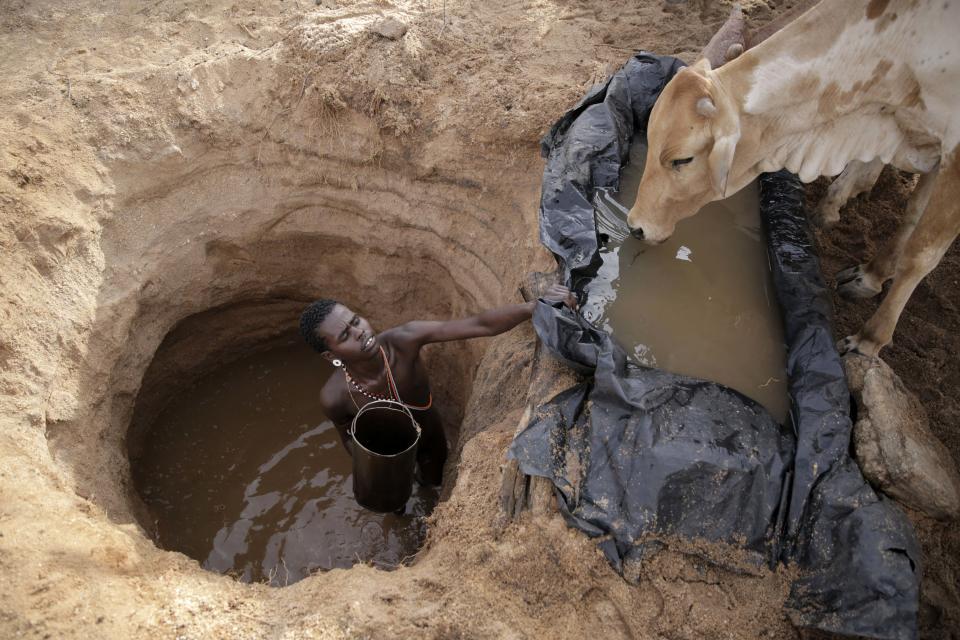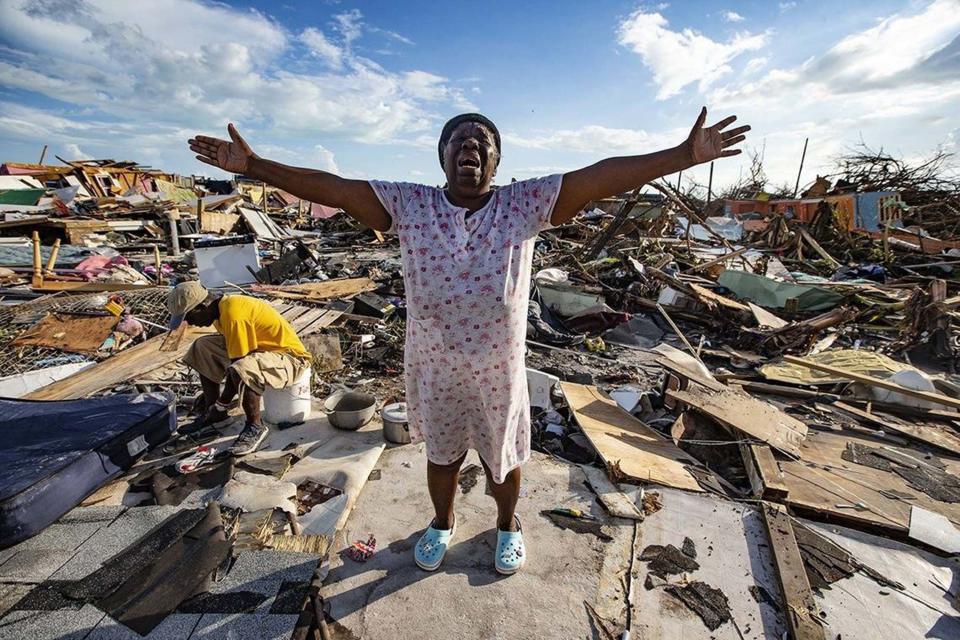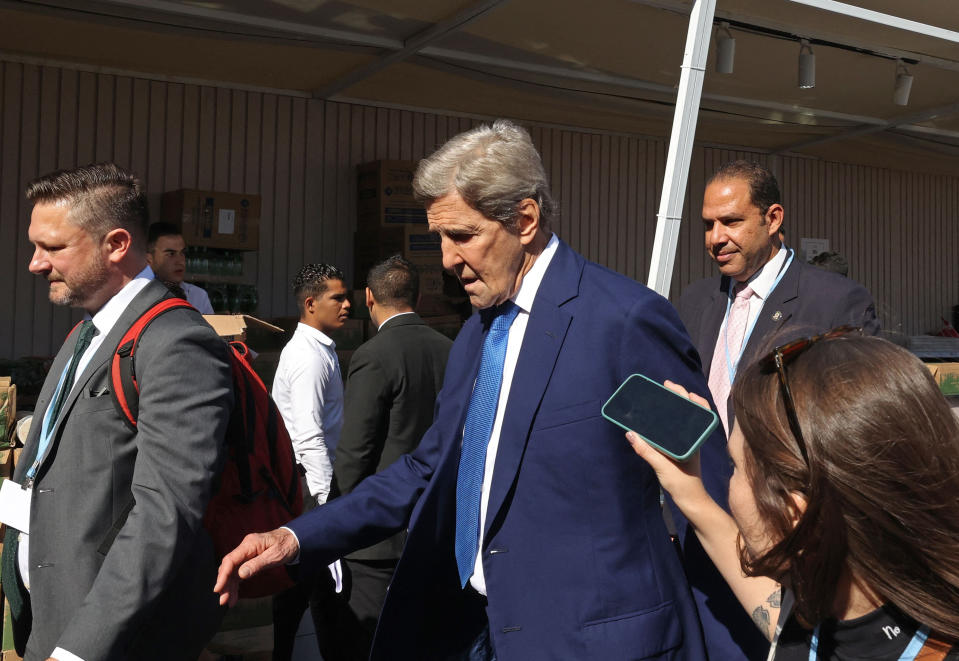Should rich countries pay climate 'reparations'? What the COP27 debate means
Searing heat waves, hypercharged storms, rising sea levels, devastating droughts and floods — evidence of climate change’s calamitous impact is being felt from the Bahamas to Bangladesh, and it’s fueling a growing movement for climate “reparations.”
This push for major, debt-free funding for climate-vulnerable countries that have contributed little to the onset of global warming has made significant strides in recent years — and the issue gained new momentum at the ongoing United Nations climate conference in the Red Sea resort town of Sharm el-Sheikh in Egypt.
Meena Gabeena, founder of Meenay Laas, a voluntary disaster relief group in Pakistan, was in the southwestern Baluchistan province when floods ravaged the country over the summer, inundating at some points up to a third of its surface. Torrential monsoon rains and melting glaciers drowned entire villages, as rivers burst their banks, leaving millions marooned and vital crops destroyed. More than 1,700 people, including more than 500 children, were killed in the extreme flooding and 33 million more displaced.
It was one of many dramatic weather patterns this year to hit countries that bear little responsibility for the climate-fueled disasters that are becoming increasingly common.
Pakistan’s environmental footprint — how much carbon it has put into the atmosphere in recent decades — is significantly less than other countries. And at an individual level, the environmental footprint of most Pakistanis is much smaller than people in countries like the United States.
“Not a single person on the ground has any fault with what’s happening to them,” said Gabeena who, like many relief workers, activists and policymakers, wants to see a rapid and significant redistribution of wealth from the global north to the global south to deal with apocalyptic climate impacts she believes the rest of the world is yet to wake up to.
Wealthy nations increasingly are being called upon to pay up, with $75.8 million being pledged in “loss and damage” payments at COP27 so far. At the previous climate summit in Glasgow, Scotland, wealthy nations rejected proposals for a specific loss and damage fund, although countries agreed to start a “dialogue” on the issue.

Last Tuesday, Austria became the latest nation to pledge money for loss and damage — following Denmark, Scotland and Belgium — unilaterally committing $50 million to developing countries coping with the climate crisis. This came after Germany and Ireland pledged 170 million euros ($174.5 million) and 10 million euros ($10.3 million), respectively, for the ‘global shield’ initiative, which is intended to boost insurance solutions and disaster protection in vulnerable southern countries.
But for a coalition of 134 developing nations and China called the Group of 77, this isn’t enough. The negotiating bloc, which promotes the economic interests of nations in the global south, wants to introduce a new multilateral fund to help ameliorate the impact of floods, droughts and sea-level rise linked to warming gases produced by nations that became rich in the process.
The Bahamas provides a stark example of the disproportionate climate change burden that has been placed on some countries. It contributes 0.01% to global greenhouse emissions, according to data from the World Bank, yet the archipelago is particularly vulnerable to climate change.
In 2019, Hurricane Dorian devastated the northwestern islands of Abaco and Grand Bahama, killing 74 and causing damage worth $3.4 billion, according to data from the Inter-American Development Bank.

“We have a hurricane season every year from July to it’s looking like December — it’s expanding every year,” said Rochelle Newbold, the Bahamian government’s special adviser on climate change.
“Every year, the Bahamas could face a $3.4 billion hit,” she added. “In no sense of the word is that sustainable.”
Losses faced by the Bahamas during extreme climate events are difficult to quantify in purely economic terms. Abaco, an island known for its shipbuilding and ocean farming, suffered 87% of the damage of Dorian, according to the Inter-American Development Bank.
“We’re losing individuals that have that historical knowledge and artisanal skill sets that would have been passed on to the next generation of Bahamians,” Newbold said. Climate migration is why she thinks, at COP27, nations might finally act on providing funding for loss and damage, given the persistent political divisions over immigration worldwide.
'A positive movement'
She might be right. Two weeks before COP27, U.S. climate envoy John Kerry told reporters that Washington would “not obstruct” new talks on loss and damage finance.
But some activists worry that money still isn’t coming fast enough or being distributed equitably.
“This money doesn’t normally stay on the African continent, or places where the money is needed most to solve problems,” Jonathan Gokah, a co-ordinator for Kasa Initiative Ghana, a climate campaign group based in the capital, Accra, said referring to Denmark’s pledge of $13 million in September. He added that pledges for finance from Western nations were often made with conditions that activists and communities on the ground work with international consultancies, creating jobs for international aid workers, not Ghanaians.

“Climate finance hasn’t traditionally supported communities on the front line,” said Harpreet Paul, a human rights lawyer and a climate justice policy researcher at Warwick University in the United Kingdom.
“The types of projects that get funding are big infrastructure projects and not projects that front-line communities have control and autonomy and freedom to exercise, which is a huge part of repairing climate change impacts,” she added.
Yet, everyone contacted by NBC News agreed that individual pledges made by European countries, if not providing enough money to materially cover the losses incurred by climate vulnerable nations, were galvanizing first steps that might provide the political momentum needed to finally secure multilateral funds and concrete action at this conference.
“We’re seeing a progressive movement, a positive movement, a tilting of the needle,” Newbold said. “Is it being tilted quickly and fast enough? Maybe we might be more desirous of a much more swift response. But we see it moving and we appreciate that.”
This article was originally published on NBCNews.com

